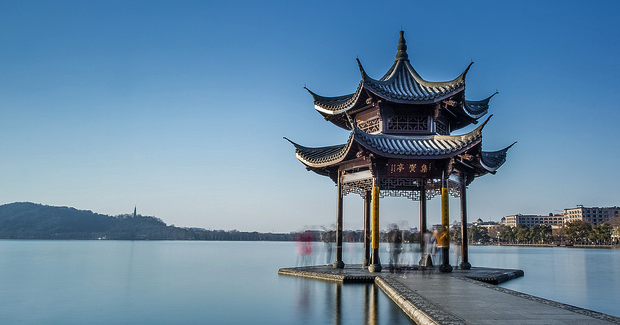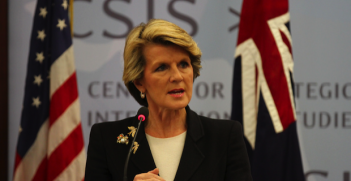G20: Making the Hangzhou Summit Relevant

Among all the summit-babble about inclusive and sustainable growth and a myriad other agendas that have attached themselves to the G20, it’s still far from clear that when leaders gather in Hangzhou in China on 4-5 September they will add strategic value to the world’s premier economic dialogue.
It’s not the divisions over objectives and values that are the problem. It is that the process has been hijacked and side-tracked from the main strategic tasks that face the global economy and international community today. Printing and spending government money in various ways to pump up the global economy after the global financial crisis was relatively easy compared to addressing the present malaise. Reliance on monetary policy to stoke the global economy is no longer a practical option.
The global economy is in serious trouble, with problems that run even deeper than the global financial crisis. Though they are less immediately discernible, their destructive power will be more long-lasting if they are not addressed now.
The world is at a major turning point, with Brexit and the political mood in the United States, still the largest economy on earth, leading industrial countries decisively away from globalisation and into retreat from trade and economic expansion. The trends are already clear, with shrinking global trade and stagnation gnawing at the heartland of the industrial world. These are harbingers of longer term structural decline in the industrial world unless there is collective global choice to reverse the malaise.
Unlike the financial collapse, this new global economic sickness is more difficult to discern but no less palpable. It is a disease that is taking hold and will wreak its insidious havoc over a decade, not for all to see in the weeks or months immediately ahead like the global financial crisis. The G20 was at its most successful in responding to the financial crisis in 2009. Leaders need to recognise the global economy is staring at the prospect of deeper abyss now and bring a sense of urgency—if not crisis—to Hangzhou.
Europe will be pinned down by what the Little Englanders like Boris Johnson have done to it for years and years and, whether Hillary Clinton takes the US presidency or not, Donald Trump has mobilised forces that could take the United States down a similar road.
Dealing with the powerful undertow of anti-globalisation is the challenge that G20 leaders face in Hangzhou. If they squib it, the Hangzhou summit will be a failure. Indecisiveness at Hangzhou will complicate China’s carefully choreographed entry into a lead role in running the global economy and receive harsh reviews down the eternity of history.
Ye Yu, whose Shanghai Institute of International Studies has been heavily involved in the lead-up to the summit, writes that “real power in global governance requires intellectual input into the international financial and economic agenda, policies and rules—the effective exercise of soft power”. This is particularly the case at Hangzhou.
So what does Hangzhou have to do to be both relevant and successful? To be judged successful in the long term, Hangzhou must lay the foundations for dealing with the undertow of anti-globalisation.
There are three key issues: the ability to progress the G20 growth agenda (this is all about what in China is called supply-side reform); the ability to achieve something ambitious on trade and investment (this is about reforming the trade system and building a system we do not yet have to secure investment openness); and the ability to deliver tangible actions to strengthen the global financial system against crisis. As Adam Triggs has argued, “delivering a successful G20 summit in Hangzhou means tackling big global challenges through practical actions that can be understood by the public”.
But the fundamental purpose of the G20 is to set the strategic direction. The worry is that the G20 is drifting away from this role and becoming more like an international think tank than the steering committee for the global economy that it was set up to be. The G20’s deliverables are increasingly bureaucratic, focused on commissioning reports, holding meetings, developing strategy papers, publishing high level principles and high level policy documents.
The G20’s fundamental comparative advantage is in its ability to reform global governance and developing consensus on steering global economic decision making. Its role is to look at the big global strategic picture, not get bogged down in the bureaucratic detail.
“Despite global economic difficulties”, says Wang Wen from China’s lead G20 think tank, “China has maintained a high growth rate and has managed to consolidate the foundation of its real economy. Its long-term economic growth and potential in sustainable growth suggest that China has unique experience in promoting development”.
The most important asset that China and most of Asia brings to the G20 meeting at this time is a continuing commitment to open economic growth and the priority that is attached to supply-oriented economic reform as the driver for growth and achieving economic potential. China has a key responsibility as the world’s largest trader for attending to the vulnerabilities in the global trading system. The strength of global trade is now tied intimately to securing the openness of the global investment regime. Hangzhou, above all, needs to begin the crafting of a new agenda for the global trade and investment regime.
The global financial safety net also remains a mess. It is too small and fragmented to deal with a large crisis and its increased fragmentation is posing a number of serious challenges. Cooperation between the IMF and regional financing arrangements is a first step. And bringing China into the swap and other cooperation arrangements among the majors is a crucial second.
The Chinese way is to think big strategically. Hangzhou will not be successful without this essential Chinese ingredient, putting its own commitments on the table: moving forward on open trade and investment through East Asia’s Regional Comprehensive Economic Partnership (RCEP) and globally; committing to deeper financial reform and capital account opening; and undertaking to be a lead partner in a new global trade and investment agenda—carrying its partners in the G20 with it.
Professor Peter Drysdale AO FAIIA is Emeritus Professor, Head of the East Asian Bureau of Economic Research and Editor-in-Chief of East Asia Forum in the Crawford School of Public Policy at the Australian National University. It was originally published on East Asia Forum on 29 August and is republished with permission.





